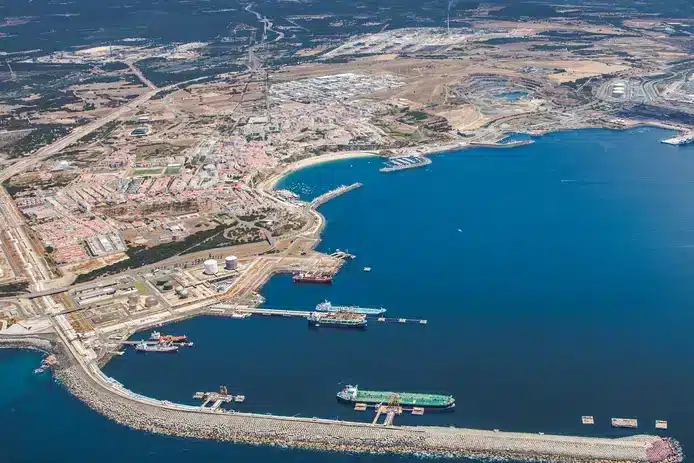APA approves €2 billion project of CALB (China Aviation Lithium Battery), with ‘more than 90 conditions’
Chinese group CALB (standing for China Aviation Lithium Battery) has received a favourable environmental impact assessment, with ‘dozens of conditions’, for its €2 billion project for a lithium battery factory in Sines.
What this means is that Portuguese Environment Agency APA has decided that the benefits of the massive project (it has been described in the past as the size of 129,000 football pitches) justify the loss of ‘around 700 cork oaks’, and the construction of a vast solar park, the details of which are still unknown.
Reports today explain that CALB’s €2 billion project “is one of the largest industrial undertakings planned for the Alentejan municipality during the next decade”.
CALB hopes to create 1,800 direct jobs and have an operational unit by 2025, says Expresso.
The plan is that the factory will produce 187,000 lithium batteries per year.
APA’s favourable environmental impact assessment was delivered last week “but with an extensive list of commitments that the Chinese company will have to assume if it wants to construct the factory. There are more than 90 measures to minimise the impact of the factory.
“APA concluded that having pondered the negative impacts, in their generality susceptible to minimisation, as well as the perspective positive impacts”, it should deliver a favourable decision to the project, irrespective of the effects of the deforestation required”, says Expresso.
“Environmental licensing has been one of the most complex challenges for large investment projects in Portugal”, the paper continues, referring particularly to projects for solar parks (that have girded communities into Herculean efforts of opposition).
“In the case of CALB, public consultation that ran from January 19 to February 29 received 129 participations”, says Expresso’s text, admitting that the crushing majority of these were ‘against’. In fact, only four were in favour. This in itself highlights the popular complaint (highlighted by PAN during the electoral campaign) that ‘public participation’ exercises carry no assurance that the public’s participation will be taken into account.
The greatest concern of those against this project has always been the destruction of a mature cork oak forest, involving at least 700 trees. Cork oaks are (meant to be) protected by law in Portugal.
Another deep known is the fact that CALB intends to power the factory with electricity “that will be generated in a photovoltaic park that has yet to be built, but the details of which are unknown”.
As Expresso adds, one of the conditions for APA’s ‘okay’ is that CALB receives a “declaration of indispensable public utility” from the government. The last time such a declaration was made it sparked outrage and protests, with citizens questioning the sense in destroying nature for what they believe are questionable ‘green solutions’.
CALB meantime will also have to supply APA with a “plan for recovery of the areas affected” (for this read ‘flattened’). Other measures of mitigation involve ‘reducing excessive artificial lighting’/ rendering/ covering the factory with material of “low visual impact” and publicising to the local community the programme of works, “ensuring that there is a mechanism in place for the receipt of complaints”.


























